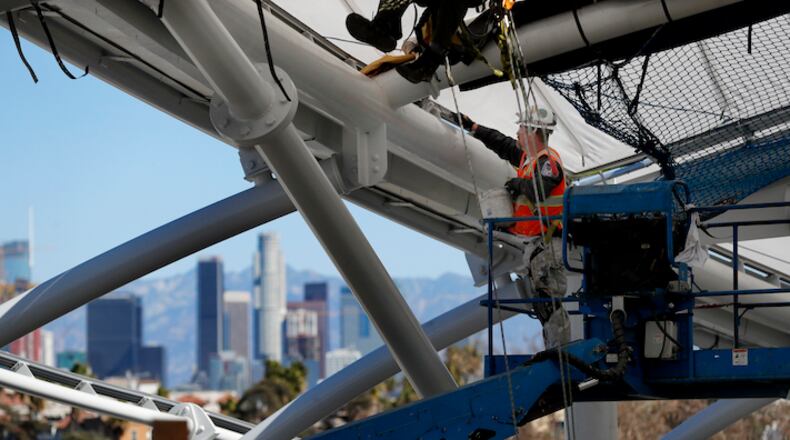The Los Angeles Football Club, Minnesota United and Atlanta United made their MLS debuts within the past 15 months, marking the most ambitious wave of expansion in the league's 23-year history. But though the clubs share similar birthdates — and two of them are officially United, at least in name — there's really not much all three have in common.
Atlanta, for example, has taken MLS by storm. Playing under a former World Cup coach in the most expensive stadium in U.S. sports, it made the playoffs in its first season and, at 7-1-1, has the league's best record two months into its second one. LAFC, which plays under its own former World Cup coach in the country's most expensive soccer-specific stadium, is second in the Western Conference eight games into its inaugural year.
Then there's Minnesota. Its coach, Adrian Heath, came to MLS from the then-third-tier United Soccer League; the team doesn't have a stadium yet; and it has won just a third of its first 43 games while giving up a league-worst 86 goals.
"We are diametrically different in our approaches to the team (and) the business as a whole," said Chris Wright, Minnesota United's CEO. "Our entire business model is so totally different to the Atlanta business model, different to the LAFC business model. It starts with that."
The differences start with the circumstances. Atlanta United and LAFC sprung from whole cloth, funded by deep-pocketed, well-connected ownership groups in two of the country's top 10 metro markets. Five months before its MLS debut, Minnesota United was playing in the third-tier North American Soccer League, which once took over the team to save it from bankruptcy, only to consider folding the franchise in 2012.
Then between expansion fees, land-acquisition costs and stadium expenses related to the team's step up to MLS, United was out nearly $400 million before it had played a game in the league.
"We're in a situation where, based on everything that we've got to do to service debt, to build a franchise, we are probably taking a little bit more of a methodical, deliberate approach to the way we build," Wright said.
"Thoughtful, methodical, deliberate," he repeats, turning the team's core philosophy into a mantra. "[It's] the way that I would describe our approach."
And it's an approach, built on a three-year plan, that is picking up steam. Because if Atlanta United and LAFC shot out of the blocks at a sprint, Minnesota is now beginning to close the gap.
After playing its first season without a designated player — and with a team payroll of $5.3 million, or less than the Galaxy paid Giovani dos Santos — Minnesota signed Colombia midfielder Darwin Quintero during this spring's primary transfer window and reportedly will pay him $1.5 million.
After opening its second season in the University of Minnesota's football stadium — where United played its first MLS home game in a snowstorm — the team is preparing to move into Allianz Field, its $200-million soccer-specific home in St. Paul before the start of next season. The team has already reached its limit of 14,500 season-ticket sales and has nearly sold out its premium spaces as well, with only four suites still available.
"To get this right and to be the kind of club that we want to be, where we're proud for years to come, it's important that we build it the right way," said sporting director Manny Lagos, a former MLS and U.S. national team midfielder from St. Paul who made his pro debut with the Minnesota Thunder, United's USL predecessor.
"Certainly this year is a really big building year for us, to grow and get better competitively on the field and to build into the community. And there's no doubt when our cathedral opens next year it's going to be one of the iconic stadiums in the U.S."
Wright, who played and coached soccer player in his native England before serving 13 years as president of the NBA's Minnesota Timberwolves, agreed.
"We're in that second season. This is the difficult season," he said. "We've got to be competitive on the field. We've got to build relationships that we can capture and captivate and then sort of convince to be part of our new stadium.
"So this year is probably the hardest year, but at the same time probably the most enjoyable year. Because you know what you're building toward."
About the Author
Keep Reading
The Latest
Featured


